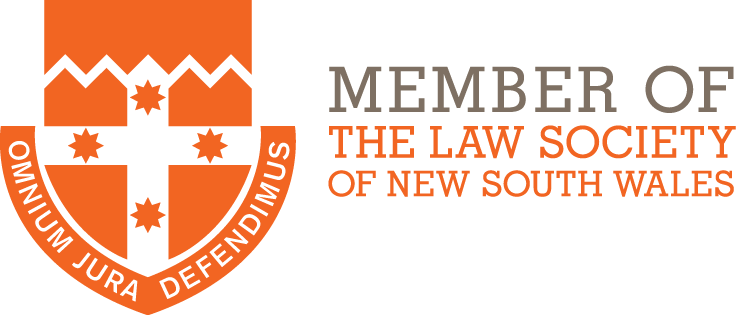Concealing Child Abuse Offence | Section 316A(1) Crimes Act 1900
Section 316A(1) of the Crimes Act of 1900 makes it a crime to hide a child abuse crime. The maximum penalty for this crime is:
- 2 years in prison if the maximum prison sentence for hiding child abuse was less than 5 years
- 5 years in prison if the maximum prison sentence for hiding child abuse was 5 years or more.
To prove the crime, the prosecution has to prove a number of facts beyond a reasonable doubt, and if they can't do that, the person is entitled to be set free.
There are also a number of ways to defend yourself in court if you are charged with the crime.
The Law
What is Hiding a Crime Against a Child?
Section 316A(1) of the Crimes Act of 1900 makes it a crime to hide a child abuse crime. The maximum penalty for this crime is:
- 2 years in prison if the maximum prison sentence for hiding child abuse was less than 5 years
- 5 years in prison if the maximum prison sentence for hiding child abuse was 5 years or more.
In this section, it says that a person has broken the law if he or she:
- Was an adult
- Knew, thought, or should have known that a crime against a child had been committed
- Knew, thought, or should have known that he or she had information that could help catch, prosecute, or convict the criminal
- Didn't tell a NSW police officer about the information as soon as possible after getting it
- didn't have a good reason for not doing so.
Section 316A makes it clear that telling someone about a crime of child abuse is not unprofessional or a breach of professional ethics. It also doesn't make you liable in a civil case, like for defamation, if you told someone in good faith.
It also says that a prosecution can't start without the DPP's permission if the information came from certain professions, callings, and vocations. These include doctors, lawyers, and people in the clergy.
A child abuse offence is:
a) The murder or manslaughter of a child, including infanticide under section 22A of the Act. b) Any of the following crimes where the victim is a child:
I Murder with the intent to kill, as defined by Section 27 of the Act, which includes giving someone a poison or something that will hurt them, or making them seriously hurt or kill them.
(ii) Under Section 29 of the Act, trying to kill someone by giving them a poison or something that will hurt them, shooting at or firing a gun, drowning, suffocating, or strangling them with the intent to kill,
(iii) Intentional wounding or serious bodily harm under section 33,
(iv) Section 35 reckless wounding or serious bodily harm,
(v) Section 37: Choking, strangulation, or suffocation
(vi) Using a drug that makes you drunk to commit a felony under Section 38,
(vii) Spiking food or drink in violation of Section 38A,
(viii) Using poison to put someone's life in danger or cause serious bodily harm, which is against section 39,
(ix) Using poison to hurt or upset someone, which is against section 41,
(x) Poisoning the water supply in violation of Section 41A,
(xi) Not giving people the things they need to live, as stated in Section 44,
(xii) Female genital mutilation under section 45,
(xiii) Removing a person from the state for female genital mutilation under Section 45A,
(xiv) Injuring a person with gunpowder, which is against section 46,
(xv) Assault causing real bodily harm under section 59,
(xvi) Assaults in schools, according to section 60E,
(xvii) Abduction according to section 86,
(xviii) Voyeurism under section 91J
(xix) Sexual assault under section 61i,
(xx) Assault on a woman with a weapon under section 61J,
(xxi) Section 61JA aggravated sexual assault in company,
(xxii) Assault with the intent to have a sexual act under Section 61K,
(xxiii) Sections 61KC, 66DA, and 66DB talk about sexual touching.
(xxiv) Section 61KD, aggravated sexual touching,
(xxv) Acts of sexuality listed in sections 61KE, 66DC, and 66DD,
(xxvi) Sexual act with serious consequences under sections 61KF and 66DE,
(xxvii) Having sexual relations with a child in violation of sections 66A and 66C,
(xxviii) Under sections 66B and 66D, if you try to have sexual relations with a child,
(xxix) Sexual act for the purpose of making material about child abuse under section 66DF,
(xxx) Sexual abuse of a child that goes on for a long time (section 66EA),
(xxxi) Getting or preparing a child under 16 for sexual activity that is against the law (section 66EB), (xxxii) Getting or preparing a person for sexual activity with a child under that person's control (section 66EC),
(xxxiii) Sexual contact with a minor in a special case, as described in Sections 73 and 73A,
(xxxiv) Incest under section 78A
(xxxv) Section 78B, attempted incest,
(xxxvi) Sexual assault by forced self-manipulation, which is a violation of section 80A; (xxxvii) sexual servitude, which is a violation of section 80D;
(xxxviii) Business dealings that involve sexual servitude under Section 80E,
(xxxix) Incitement to commit sexual servitude under section 80G,
(xl) Under Section 91D, promoting or taking part in acts of child prostitution,
(xli) Getting money from child prostitution, which is a violation of section 91E, and (xlii) using a place for child prostitution, which is a violation of section 91F.
(c) Any of the crimes below:
I Injuring a child at birth (section 42), (ii) Leaving a child under 7 years old alone or in a dangerous place (section 43),
(iii) Not taking care of a child as a parent should under Section 43A,
(iv) Using a child to make child abuse material, which is against the law under section 91G, and (v) making, spreading, or having child abuse material, which is against the law under section 91H.
(d) Sexual crimes committed in the past that involved a child, (e) Attempts to commit any of the above crimes, and (f) Crimes from the past that are very similar to any of the above crimes.
What is the punishment?
The worst punishment for hiding a crime of child abuse is:
- 2 years in prison if the maximum prison sentence for hiding child abuse was less than 5 years
- 5 years in prison if the maximum prison sentence for hiding child abuse was 5 years or more.
But it's important to remember that this is the maximum sentence that can be given and that the court can choose from any of the following:
- Section 10
- Community Correction Order
- Fine
- Conditional Release Order for Dismissal
- Order for Strict Punishment
- Less time in prison
What does the prosecution need to prove?
For a person to be found guilty of hiding a child abuse crime, the prosecution must prove beyond a reasonable doubt that each of the following "elements" of the crime were met by the defendant:
Was an adult, knew, thought, or should have known that a crime against a child had been committed, knew, thought, or should have known that he or she had information that could help catch, prosecute, or convict the criminal,
Didn't tell a NSW police officer about the information as soon as possible after getting it, and didn't have a good reason for not doing so.
If the prosecution can't prove each of these things to the required level, the case will be dropped.
How do you defend yourself?
In addition to having to prove each part of the crime, the prosecution must also refute any of the following defences if they are raised in a proper way:
- Duress is when you were scared or forced to do something.
- Necessity, in which the act was done to avoid danger
- Self-Defense, in which the act was done to protect yourself or someone else.
It must prove beyond a reasonable doubt that these defences don't work.
You can also show that you had a "reasonable excuse" for what you did. This includes situations like:
- You had a good reason to think that the police already had the information
- You told the police about the information through another law, like the Children and Young Persons (Care and Protection) Act 1998, the Children's Guardian Act 2019, or Part 3A of the Ombudsman Act 1974 before it was thrown out, or you had a good reason to think that someone else had done so,
- You had good reason to worry about someone's safety if you told anyone about the information.
- When you got the information, you were under 18 years old,
- When you got the information, the alleged victim was an adult, and you had a good reason to think he or she didn't want it reported, or
- The details were about a fight at a school, and:
There was only a small injury as a result.
Both sides were school kids younger than 18 years old.
You worked at the school
You took reasonable steps to tell the incident reporting unit or the principal or governing body if it was a government school. If it was a non-government school, you told the principal or governing body.
Your Choices in Court
Not Guilty Plea
Before you can be found guilty of hiding a child abuse crime, the prosecution must prove beyond a reasonable doubt that:
- You were an adult
- You knew, thought, or should have known that a child abuse crime had been committed
- You knew, thought, or should have known that you had information that could help catch, prosecute, or convict the offender
- You didn't tell a NSW police officer about the information as soon as you could after getting it
- You didn't have a good reason for not doing so.
There are a number of ways to defend yourself against charges of hiding a child abuse crime, such as:
- The prosecution can't show that you got information that could have helped them catch, prosecute, or convict someone else of a child abuse crime.
- The prosecution can't show that you were an adult when you got this information.
- The prosecution can't show that you thought or should have thought that the information you got could be useful in catching, prosecuting, or convicting someone else of a child abuse crime.
- The prosecution can't prove that you didn't tell a New South Wales police officer about the information you got. If you're accused of telling a New South Wales police officer about the information, but not as soon as you could have, the prosecution can't prove that you didn't tell the officer as soon as you could have.
- That the prosecution can't show that you didn't have a good reason for what you did. Concerning the last point, the law makes it clear that any of the following is a good reason:
- You had a good reason to think that the police already knew,
- You told someone about the information through the Children and Young Persons (Care and Protection) Act 1998, the Children's Guardian Act 2019, or Part 3A of the Ombudsman Act 1974 before it was taken away, or you had a good reason to think that someone else had done so.
- You had good reason to worry about someone's safety if you told anyone about the information.
- You were under 18 when you got the information, the alleged victim was an adult when you got the information, and you had a good reason to think he or she didn't want it reported, or
- The details were about a fight at a school, and:
There was only a small injury as a result.
Both sides were school kids younger than 18 years old.
You worked at the school
You took reasonable steps to tell the incident reporting unit or the principal or governing body if it was a government school. If it was a non-government school, you told the principal or governing body.
If any of these things are true, you can't be found guilty of the crime.
A good lawyer will be able to write to the prosecution to try to get the case against you dropped, or they will fight to get it thrown out of court if it goes to a hearing or trial.
Guilty Plea
You might decide to plead guilty to the crime if the evidence against you is very strong.
In that case, your lawyer might be able to talk with the police about the "facts" to make the crime less serious.
Your lawyer can also help you get materials that can be given to the court during your sentencing, such as a letter of apology, references from people who know you well, and any documents from therapists or doctors you have seen.
Together, these pieces of evidence and your lawyer's convincing arguments in court can help make sure you get the lightest sentence possible given the situation.
By pleading guilty early, you could get a "discount" of up to 25% on your sentence. This could mean that you get a less severe punishment, like a section 10 dismissal or a conditional release order, instead of a harsher one.
You will also save time, money, and stress by not having to go to a hearing or trial to defend yourself.


